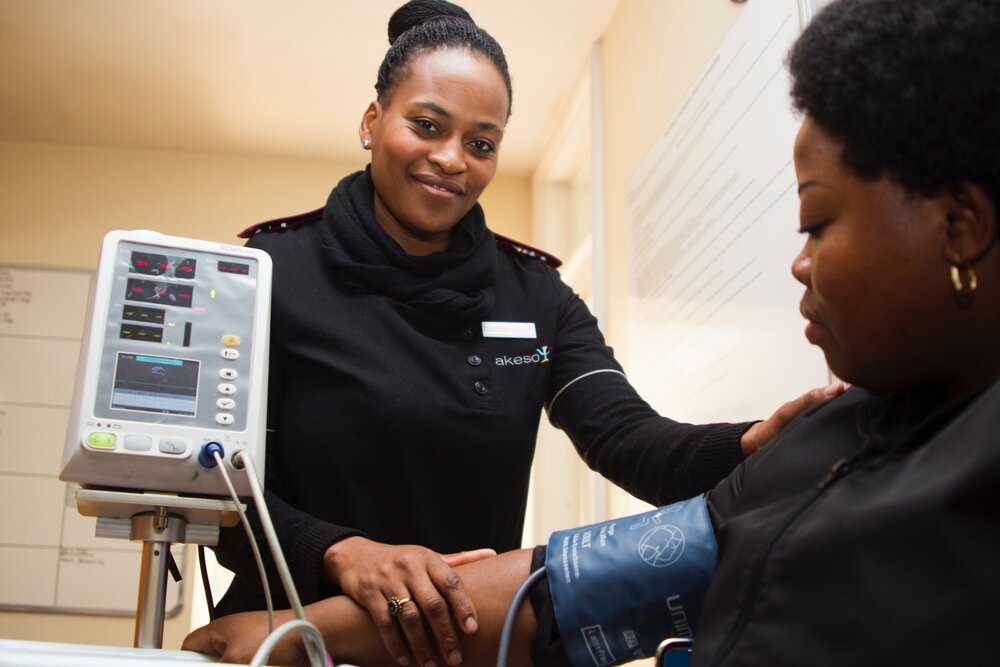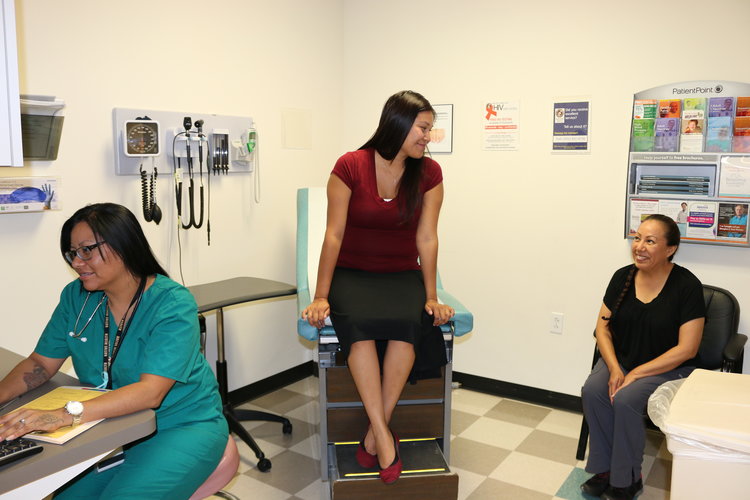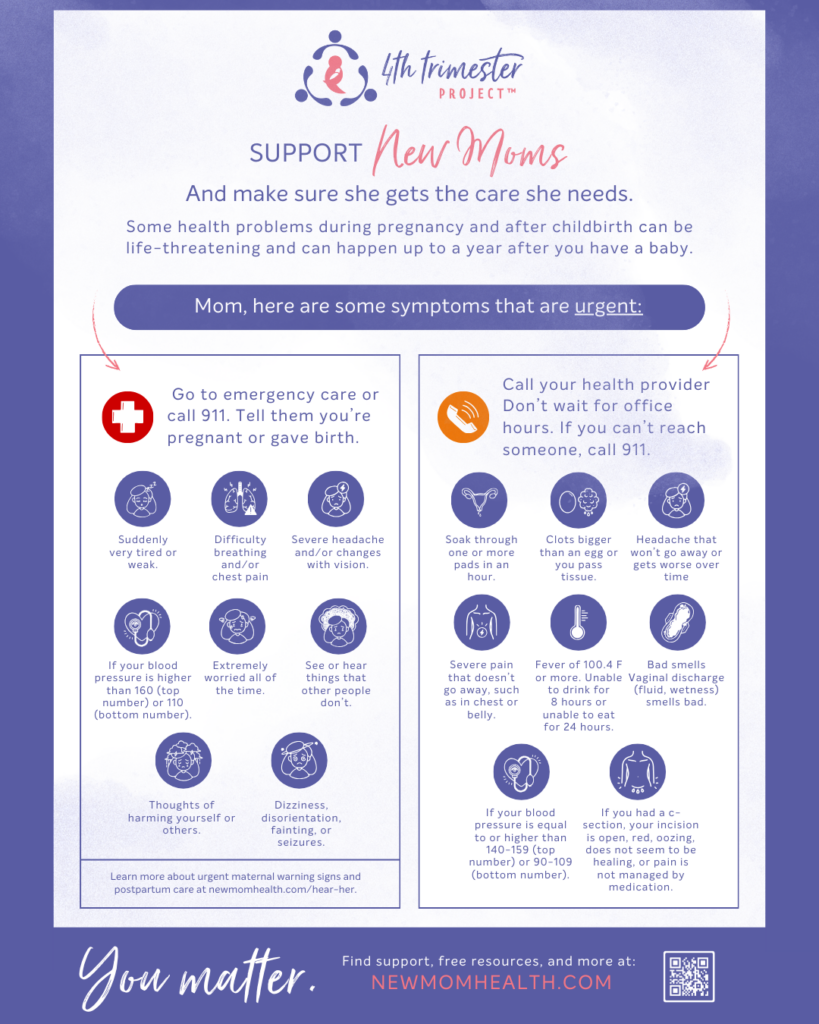
To have confirmation that you are recovering and transitioning well in the 4th Trimester and to address any concerns, utilize your health care team. This might mean asking questions through an online form or patient “portal”, calling a nurse line, and also being seen in-person. The American College of Obstetricians and Gynecologists recommends that health care providers establish more “woman-centered” care. This means that the health care team should listen to women and address the topics that matter most to mothers. The 2018 guidelines state that women should receive some kind of contact from their health providers within the first three weeks after childbirth and receive appointments for follow up care when they need it. A lot happens to a woman’s body, home, health, and life after delivery – here are tips to help you engage with your providers to get the information and support that matters most to you.
Make the visit yours! Ever walk into your appointment and have it go in a direction that wasn’t about you? Then when you are asked for questions, not all of them come to mind? You’re not alone. Write down what is going well with your health, note your questions, and list any symptoms that are concerning or confusing ahead of time. It may help to bring someone with you into the clinic room to help make sure you’re getting the information you need.
Go prepared. Bring your paperwork for leave from work or school (if required) so it can be signed while you are at your appointment. If you have insurance questions, bring needed paperwork so you can get help there.
It’s private and important. If there is something you are wondering about, but you feel embarrassed bringing it up, let your provider know how you feel. Topics like incontinence (peeing or pooping when you do not mean to) are common in the 4th Trimester, although it may be new to you. If you indicate to your health care provider that something is hard to discuss, it lets him or her know that you have something important to say. You deserve to be heard and to receive a respectful, thoughtful response.
Speak your mind. It is important that you are able to be open and honest with your health care provider. They may offer recommendations for your postpartum health, but if that plan does not fit into your lifestyle, then it won’t work for you. It is ok to tell your health care provider if you are seeking information on certain topics or do not understand or need certain suggestions. Make sure they are helping you take care of you.
Ask twice. If your provider says something that is not clear or that upsets you, it is ok to stop and ask them to explain it in another way. You can also ask to speak with a nurse or someone else who may be able to offer the information you need.
Prioritize. Many health clinics are busy. Make sure you ask your most important questions first in case the time is up fast and the provider moves on before you are done.
Write it down. Your provider might cover a lot of information during an appointment and it can be hard to keep it straight in your head. If you write down the important points, it will be easier to remember later. Check paperwork that the clinic provides at the end of your visit. There may be recommendations for self- and infant-care as well as community resources listed.
Helping hands. You can bring children to your clinical appointments if that works best for you. Another option is to see if a family member, friend, or your partner can watch your baby and older kids. Helping hands might mean coming with you to the clinic and remaining in the waiting room or going into the exam room together. If someone can help, it can make it easier to ask the questions that you like and actively listen to the health care team at your appointment.








